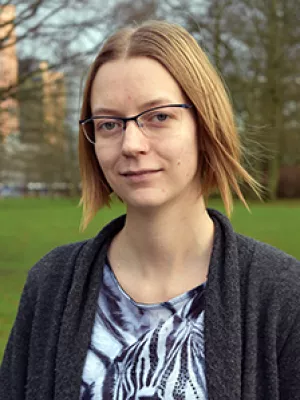Developing organic farming : Agroecological challenges for sustainable intensification
Utveckla ekologiska odling : Agroekologiska utmaningar med hållbar intensifiering
Författare
Summary, in English
One of the most important challenges for modern society is how to feed the world in a sustainable manner. Agriculture is an essential part of food production, but at the same time it has many negative impacts on the environment, through for example pollution, nutrient leaching, and greenhouse gas emissions, and it is a big driver of biodiversity loss. Organic farming is a farming system that in many ways reduces these negative effects, however, it has lower yields and therefore its sustainability has been debated. Often neglected in this discourse is the possibility of raising organic yields without aggravating environmental impacts, thus improving its overall sustainability. Farmland biodiversity may play an important role in this quest. Biodiversity is on the one hand threatened by intensive agriculture but may at the same time benefit agriculture through the services it provides. Ecosystem services provided by farmland biodiversity include pollination of crops, pest control by natural enemies, and healthy soil providing efficient nutrient cycling. Weeds are generally considered a problem in farming because of competition with the crop leading to a potential yield loss, but they may also support a lot of beneficial organisms providing ecosystem services and contribute to a more diverse agroecosystem. With focus on mainly cereal crops in agriculturally productive areas of Sweden, where organic farming is currently rare, this thesis investigates how organic yields can be improved and if it can be done sustainably with special attention on the role of biodiversity. Combining field studies and experiments with farmer interviews and questionnaires, I show that organic farming is a diverse farming system, both regarding management and yields. The average yield of organic cereals is lower than conventional ones, however the yield difference is smaller when we account for the fact that organic farming is more common on less productive land. I identified several avenues to reduce the yield difference and improve organic yields, most importantly the nutrient management as the average fertilization was only half compared to in conventional fields. In practical terms, the extent that fertilization can be improved may be limited, because efficient organic fertilizers beyond manures are limited in supply and nitrogen-fixing crops such as legumes have a limited capacity to provide nutrients. I further show that improved nutrient management can have negative consequences for weed diversity and other biodiversity. Yields of organic cereals are also limited by competition from weeds in many cases, where weed pressure could be reduced by for example increased mechanical weeding. However, mechanical weeding is time and labour intensive for the farmer and weed removal may reduce the weed community’s capacity to promote biodiversity. My results also demonstrate that weeds do not always cause a yield loss, and to alleviate the trade-off between yield loss and biodiversity benefits, weed management could focus on actions that favour the competitiveness of the crop, and diverse weed communities. This thesis demonstrates the tight relationship between organic farming and biodiversity, and how they sometimes counteract each other but also how they can support each other. Yields and the long-term sustainability of the organic farming system can be improved, but only if risks are carefully considered.

